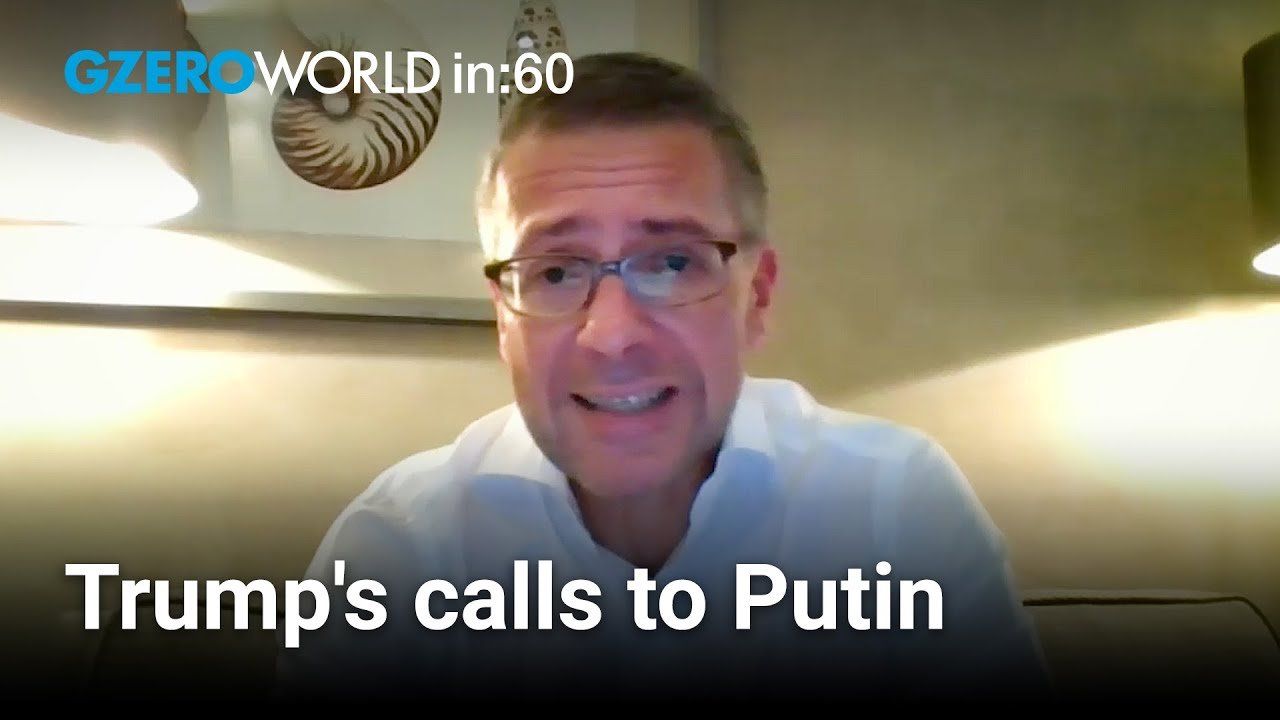Ian Bremmer shares his insights on global politics this week on World In :60.
As another hurricane hits Florida, how is information complicating disaster relief efforts?
Well, the heads of FEMA are saying this is by far the worst misinformation environment they've ever seen around a natural disaster, and it makes life a lot more difficult. First of all, it means a lot of people that need help aren't getting help, a lot of people that need to evacuate aren't evacuating, and it undermines the morale of the people that are working to try to help respond to the hurricane. So, for all of these reasons, when you have people saying that the money isn't actually being sent or it's being displaced, or that there are blockades, all of these things, if there's ever a time that you need scientists and authorities to be believed and listened to, it's in a national emergency. We saw these problems with the pandemic working with a lot of uncertainty, and you now see this working with a hurricane, working with a lot of certainty. So, even in an environment that should be depoliticized should be very straightforward that everyone comes together, it doesn't matter if you're red or blue. If you're getting hit by a hurricane, you need the same information. You need the same services that's being undermined by a disinformation environment. My God, am I worried about that in the aftermath of the US election in November. People should not sleep on how challenging it's going to be to get through that.
What do Southeast Asian leaders hope to accomplish at the ASEAN regional summit?
Well, the big thing they hope to accomplish, and this is not an organization like the EU or NATO; it's a pretty disparate group of countries that have very different political and economic systems and values and preferences; not a lot of common authority, but certainly, they all want to see an end to the civil war that has been expanding in Myanmar. And so the top issue is can they collectively push for diplomatic engagement between the two sides that have not been willing to talk to each other? Certainly, that is Secretary of State Tony Blinken's hope and effort in his attendance right now. We'll see if it goes anywhere, but it's increasingly disruptive for economics, for infrastructure, supply chain across the region, and right now, it is getting worse.
What do you make of reports that Trump stayed in touch with Putin after leaving office?
We heard from Bob Woodward, this new book coming out, some seven direct conversations, phone calls that Trump had with Putin since leaving the presidency, which does surprise me a little, honestly. We know that Zelensky really wanted to have one conversation with Trump a few weeks ago during the United Nations meetings on the sidelines, and it looked like that wasn't going to happen, and then finally it did. Certainly, for those that are concerned that Trump and Putin are continuing engagement and that means that Zelensky might be thrown under the bus, there's more reason to be concerned about that given those ongoing conversations. Certainly, you'd want to know what they're about. Trump does want an end to the war. Frankly, most of the world is aligned with him and wanting an end to the war, and I think it's useful to be able to talk with Putin directly. Frankly, I think that people like Biden and Ursula von der Leyen and the NATO secretary general should be talking to Putin even though there is a war going on that they're on opposite sides of, because it would help potentially long-term reduce tensions and lead to a greater potential of a negotiated settlement. But that's very different from a bunch of conversations that had not been discussed and that aren't necessarily trusted.
More For You
As more small businesses move sales, payments, and customer relationships online, they unlock new opportunities, but they also become easier targets for cyber-criminals and other threat actors.
Most Popular
What’s Good Wednesdays™, February 11, 2026
Football wins, local economy scores
Chris, an Army veteran, started his Walmart journey over 25 years ago as an hourly associate. Today, he manages a Distribution Center and serves as a mentor, helping others navigate their own paths to success. At Walmart, associates have the opportunity to take advantage of the pathways, perks, and pay that come with the job — with or without a college degree. In fact, more than 75% of Walmart management started as hourly associates. Learn more about how over 130,000 associates were promoted into roles of greater responsibility and higher pay in FY25.
Tune in on Saturday, February 14th at 12pm ET/6pm CET for the live premiere of our Global Stage from the 2026 Munich Security Conference, where our panel of experts takes aim at the latest global security challenges.
Microsoft unveiled a new set of commitments guiding its community‑first approach to AI infrastructure development. The strategy focuses on energy affordability, water efficiency, job creation, local investment, and AI‑driven skilling. As demand for digital infrastructure accelerates, the company is pushing a new model for responsible datacenter growth — one built on sustainability, economic mobility, and long‑term partnership with the communities that host it. The move signals how AI infrastructure is reshaping local economies and what people expect from the tech shaping their future. Read the full blog here.
